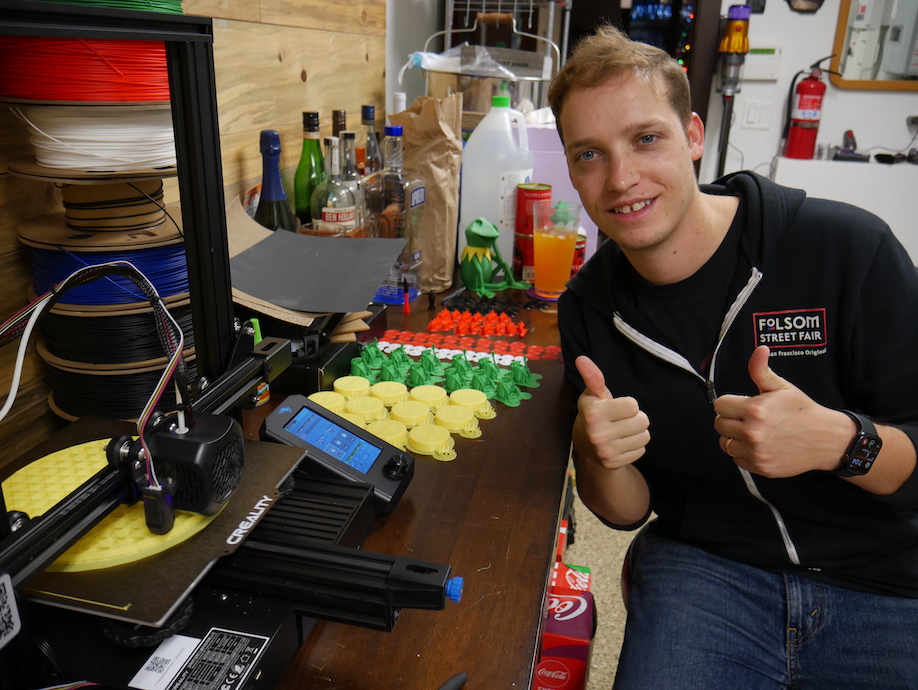
Samuel Sampson
software engineer
My goal in life is to create something beautiful or useful for the betterment of
humanity.
Throughout my academic and professional careers I've worked to improve my understanding
of science, build strong problem solving skills, and curate an entrepreneurial
perspective.
Education
-
Georgia Technical InstituteFall 2022 - PresentMaster of Science in Computer Science, Machine Learning SpecializationAfter graduating in 2017 and entering the workforce with the intent to re-evaluate if I had any interest in academia later on, I'm finally pursuing a Master's degree!
My academic interests are primarily in deep learning and computer vision, and the recent improvements in generative AI art have also sparked my interests. -
University of California San DiegoGraduated 2017Bachelor of Science in Cognitive Science, minoring in Computer Science
Work Experience
-
GoogleSoftware EngineerSeptember 2018 – Present
Improved accessibility, enabled mobile platforms and improved overall code health for Cloud Shell by migrating terminal emulation software, implementing a necessary re-architecture of Cloud Shell’s frontend Migrated Cloud Shell from Angular.JS to Angular Revamped integration test setup for Cloud Shell, decoupling testing setup and configuration from test logic Decreased Cloud Shell integration test flakiness by 17%, improved testing workflow speed by 21%, and increased overall test coverage by 69% Implemented automated student verification service, integrating several Google Services as a proof of concept project for initial Engineering Residency
-
VisaJune 2017 – September 2017Software Engineering Intern
At Visa, I learned how to work in enterprise software engineering envirornments. Large codebases, developed by many people over years has both benefits and burdens, but ultimately I took away how to balance following critical security and code conventions while improving code quality and testing coverage.
I worked exclusively on the backend for Visa Checkout during my internship, and worked to improve existing APIs as well as building new APIs from scratch. The tech stack I worked with at Visa was a Java / Spring backend with Hibernate and Oracle Database.
After finishing several projects including testing, certification and deployment, I worked to document Visa Checkout's existing APIs using Swagger, integrating Swagger generation into Visa's build tools and automatically generating a Swagger server for internal consumption.
-
Parity ComputingNovember 2016 – May 2017Research Intern
At Parity Computing I worked to further my knowledge of Machine Learning. I participated in architecting new approaches to machine learning tasks fundamental to Parity Computing's business. In addition, I implemented experimental machine learning models in classification tasks that could be used for further research and analysis of Parity Computing's proprietary datasets. Technologies involved in the machine learning approaches developed were Python, Keras, Scikit-Learn, and other database integration tools.
In addition, I implemented web services critical to Parity Computing's business endeavors. For these web services I built data visualization techniques for large datasets, involving complex database queries and data architecting. Technologies involved in the web development tasks included Java, Jersey, Cassandra, Solr, JAX-RS, JSP and HTML, Javascript and JQuery, and CSS3/HTML.
-
Virtual Piggy IncMarch 2014 – June 2014Software Engineering Intern
At Virtual Piggy I learned for the first time what Web Development entailed. I worked as a full stack engineer with a tech stack full of technologies I'd never used before. I implemented RESTful APIs integrating with third party APIs that allowed for Virtual Piggy to implement and issue physical credit cards to its customers. In addition, I implemented interfaces on the front end consuming APIs I developed, encompassing the whole stack.
In addition to helping the company's initiatives, it was extremely rewarding to take on challenges in the form of new technologies and paradigms I'd never been exposed to, and to see my efforts being used by end users in production.